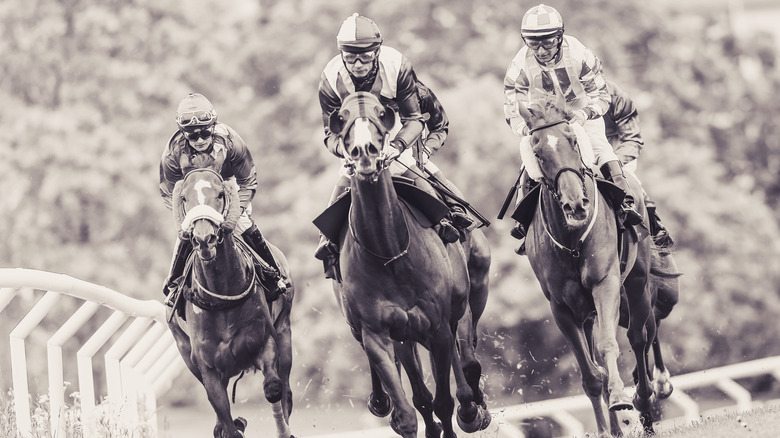The Origin Behind The Phrase 'Hands Down'
The phrase "hands down" is often associated with excellence. It suggests something so amazing that it knocks out all the competition. This milkshake is the best in the city, hands down. This comedian is hands down the funniest stand-up comic on stage.
Not only does hands down suggest effortless victory or superiority (via Merriam-Webster), it also hints at the idea that there is no room for debate. This is especially true in situations where there is no clear-cut victor and superiority is a matter of opinion. Someone could, for instance, say that a painter is the best classical artist, hands down. This person is saying there's no point in arguing. The painter is so good that he is obviously the best.
Hands down is an interesting expression that conjures imagery of grabbing hands, passing something down to the next person. But, where does the phrase originally come from? Perhaps it derives from the wave at a football stadium. All the hands collectively go up and then, as the players take the field, it's "hands down." Or could it mean a fighter, someone so good they could take on their opponents with both hands behind their back in a hands down position. Perhaps it is a command, somehow the opposite of "hands up" as if to say surrender. This battle has already been won.
Alas, it is none of these things. The origin of the expression "hands down" is a bit more obscure.
19th century horse racing
According to Mental Floss, the phrase hands down comes straight from the stables of 19th century horse races. It was an ode to jockeys who crossed the finish line so far ahead that they could comfortably put their hands down, drop the reins, and still win. While these jockeys were undeniable winners, the phrase was initially quite literal and only used to describe expert riders who were talented enough to complete races with their hands down.
According to HuffPost, a 2000 book titled "The Language of Horse Racing" reveals real-life instances of the phrase as it appeared in newspapers in the mid-1800s. These examples were literal, as opposed to the figurative nature of the phrase as it appears today.
As times change, so does language, and the way this expression has morphed into a superlative is an excellent example. By modern standards, a hands down winner is simply undeniably good. But, the next time you describe something as being hands down the best, you can imagine a victorious equestrian dropping the reins on his horse and galloping over the finish line with ease.

